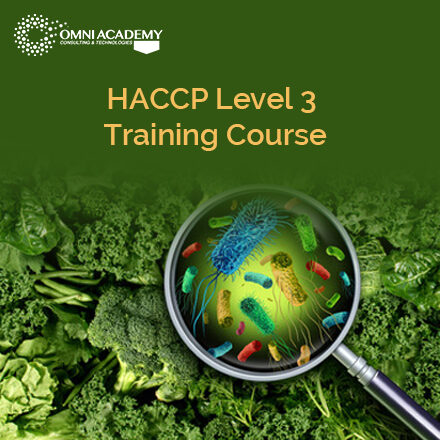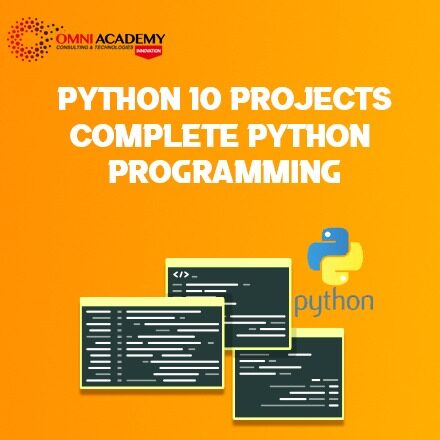 Diploma Artificial Intelligence
Diploma Artificial Intelligence
In this course you will learn what Artificial Intelligence (AI) is, explore use cases and applications of AI, understand AI concepts and terms like machine learning, deep learning and neural networks. You will be exposed to various issues and concerns surrounding AI such as ethics and bias, & jobs, and get advice from experts about learning and starting a career in AI. You will also demonstrate AI in action with a mini project.
This course does not require any programming or computer science expertise and is designed to introduce the basics of AI to anyone whether you have a technical background or not.
Course Key learnings:
- The course provides the entire toolbox you need to become a data Analyst.
- Impress interviewers by showing an understanding of the data science field
- Learn how to pre-process data
- Understand the mathematics behind Machine Learning (an absolute must which other courses don’t teach!)
- Start coding in Python and learn how to use it for statistical analysis
- Perform linear and logistic regressions in Python
- Carry out cluster and factor analysis
- Be able to create Machine Learning algorithms in Python, using NumPy, statsmodels and scikit-learn
- Apply your skills to real-life business cases
- Use state-of-the-art Deep Learning frameworks such as Google’s TensorFlowDevelop a business intuition while coding and solving tasks with big data
- Unfold the power of deep neural networks
- Improve Machine Learning algorithms by studying underfitting, overfitting, training, validation, n-fold cross validation, testing, and how hyperparameters could improve performance
- Warm up your fingers as you will be eager to apply everything you have learned here to more and more real-life situations.
- Build an AI
- Understand the theory behind Artificial Intelligence
- Solve Real World Problems with AI
- Master the State of the Art AI models
- Q-Learning
- Deep Q-Learning
- Deep Convolutional Q-Learning
- A3C
Course Outline
Module1:Introduction
- The Various Data Science Disciplines
- Connecting Data Science Discipline
- Benefits of Discipline
- Popular Data Science Techniques
- Poular Data Science Tools
- Carrers in Data Science
- Debunking Common misconception
Module2: Probability
- Probability Combinations
- Bayesians Inference
- Distributions
- Probability in Other Fields
Module3: Statics
- Descriptive Statics
- Inferential Statics Fundamentals
- Inferential Statics:Confidentals Intervals
- Practical Examples
Module4: Python
- Introduction To Python
- Variables & Data Types
- Basic Python Syntax
- Python Operators
- Conditional Statement
- Python Functions
- Sequence
- Iterations
- Advanced Python Tools
- Advanced Staticals method in Python
Method5:Advanced Statistical Methods in Python
- Advanced Statistical Methods-Liner Regression with Stats Model
- Advanced Statistical Methods-Multiple Liner Regression with Stats Model
- Advanced Statistical Methods-Liner Regression with sklearn
- Advanced Statistical Methods-Practical Example
- Advanced Statistical Methods-Logistic Regression
- Advanced Statistical Methods-Cluster Analysis
- Advanced Statistical Methods-Other Types of Clustering
Module6: Mathematics
-
What is a Matrix
-
Scalars and Vector
-
Scalars and Vector
-
Linear Algebra and Geometr
-
Linear Algebra and Geometr
-
Arrays in Python – A Convenient Way To Represent Matrice
-
What is a Tensor
-
What is a Tensor
-
Addition and Subtraction of Matrice
-
Addition and Subtraction of Matrice
-
Errors when Adding Matrice
-
Transpose of a Matri
-
Dot Produc
-
Dot Product of Matrice
-
Why is Linear Algebra Useful?
Module7: Deep Learning
- Introduction to Neural Networks
- How to Build a Neural Network from Scratch
- TensorFlow
- Introducing Deep Neural Networks
- Overfitting
- Intializing
- Preprocessing
- Classifying on the MINIST Database
Module 8: Fundamentals of Reinforcement Learning
- Fundamentals of Reinforcement Learning
- Q Learning Intitution
- Q-Learning Visualization
Module9:Deep Q-Learnings
- Deep Q-Learning Intution
- Deep Q- Learning Implementation
- Deep Q-Learning Visualization
Module10: Deep Convolutional Q-Learning
- Deep Convolutional Q-Learning-Intution
- Deep Convolutional Q-Learning-Implementation
- Deep Convolutional Q-Learning-Visualization
Module11 :A3C
- A3C-Intution
- A3C-Implementation
- A3C-Visualization
Module 12: Bonus Learning- LLM
- Early approaches to Natural Language Processing (NLP)
- Recent NLP advancements
- From Language Models to Large Language Models (LLMs)
- The efficiency of LLM training.
- Supervised vs Semi-supervised learning
- Phases in building LLMs
- Prompt engineering vs Fine-tuning vs RAG: Techniques for AI optimization
Final Project
Requirements
- High School Maths
-
Basic Python knowledge
Who this course is for:
- Anyone interested in Artificial Intelligence, Machine Learning or Deep Learning
International Student Fee: 1000 US$
Job Interview Questions
Job Interview Preparation (Soft Skills Questions & Answers)
- Tough Open-Ended Job Interview Questions
- What to Wear for Best Job Interview Attire
- Job Interview Question- What are You Passionate About?
- How to Prepare for a Job Promotion Interview
Stay connected even when you’re apart
Join our WhatsApp Channel – Get discount offers
500+ Free Certification Exam Practice Question and Answers
Your FREE eLEARNING Courses (Click Here)
Internships, Freelance and Full-Time Work opportunities
Join Internships and Referral Program (click for details)
Work as Freelancer or Full-Time Employee (click for details)
Flexible Class Options
- Weekend Classes For Professionals SAT | SUN
- Corporate Group Trainings Available
- Online Classes – Live Virtual Class (L.V.C), Online Training
Related Courses
Computer Science for Artificial Intelligence Professional Certificate
Using A.I. Tools with Business Use Cases Practical Training
Artificial Intelligence Nanodegree: A beginner-friendly course
AI For Everyone: A non-technical introduction to AI
Using A.I. Tools with Business Use Cases Practical Training
Diploma Artificial Intelligence
Introduction to Artificial Intelligence- AI for beginners
Artificial Intelligence (AI) Master Course







